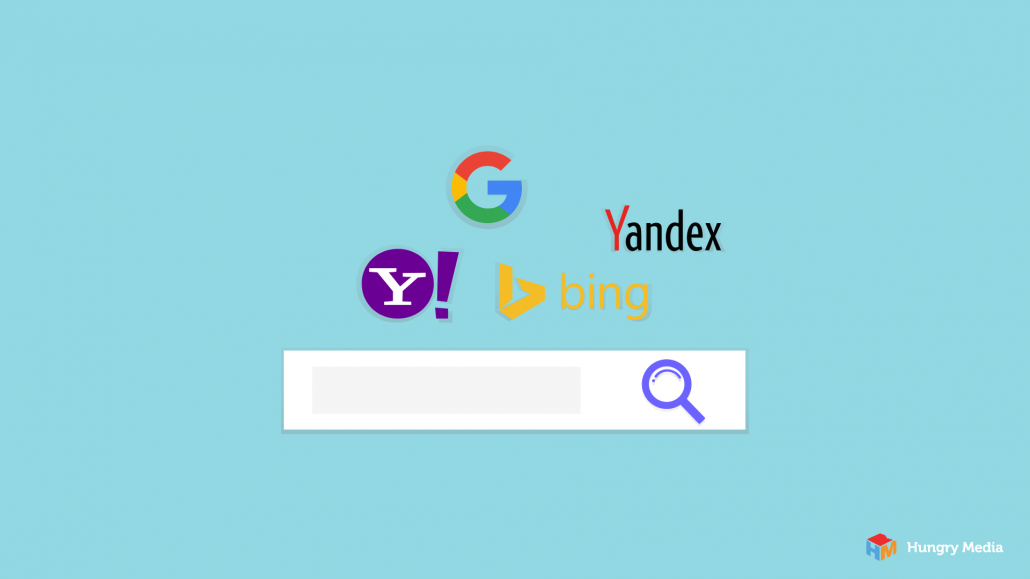
What is SEO?
Search Engine Optimization (SEO) describes methods used to ensure a website’s visibility in organic search results. If someone searches for a word or phrase associated with your business, where does website fall on the list of sites returned by the search engine? Understanding a few SEO basics will help you learn how to bump your website to the top of that list.
Why SEO?
Ever wonder why SEO is so important? Consumers may search for any number of terms directly related to your business. The higher on the results page your website appears, the more likely they are to click on your link.
In fact, according to Advanced Web Rankings, websites which appear on the first page of Google’s search results get 75% of the clicks originating from that search. Basically, if you don’t make it to the first page, the likelihood of someone finding your site from their search is pretty darn low.
What do Search Engines Want?
Search engines function by scouring the internet for high quality, relevant information about the searcher’s query. Relevance is determined by whether a particular page seems like it might be what the searcher is looking for. Quality is evaluated in many ways, but foremost is the number and quality of other websites that refer to the page in question.
We know. It’s a lot to take in. Don’t fret if you feel like you need beginner’s guide to SEO. You’re about to get a crash course!
A Few Notes
Website optimization, even if you’re just implementing these SEO basics, isn’t a “one and done.” The algorithms used to determine search results are ever evolving. It’s important to stay up to date with at least the most basic SEO trends.
When we think SEO, we tend to think “Google.” And for good reason. It’s estimated that 93% of organic search traffic comes from Google. So, for the purpose of discussing SEO basics, we will be using the terms “search engine” and “Google” interchangeably.
How To SEO
Okay, now what are the basics of SEO and how the heck do you accomplish it? In general, you’ve got two types of website SEO: on and off page. Take a look.
On-page SEO Overview
This is probably what most think of when they hear the terms SEO or optimize. It relates to integrating commonly searched, relevant, keywords into your website. Ideally each page on your site will target one core term and a few ancillary terms. Here are a few SEO basics and elements to consider for on-page optimization.
Title Tags
This is basically your search listing’s headline. It is also the clickable link to your page in a list of search results. Try to keep your title tag to 55 characters or less, as this is the maximum that will show up as the title in your search result. And make sure to include your keyword in that tag somewhere, too.
Meta Descriptions
The meta description is pretty much supplemental ad copy. It may or may not show up in search results, but it’s presence can help search engines actually find and rank your page. Therefore, it’s beneficial to incorporate your main keyword here, too.
Body Content
The actual content of each page is of upmost importance, and it’s where you’ll integrate your list of targeted keywords. Aside from keywords, search engines also consider the following SEO basics when determining the quality and relevance of your page:
- Unique Content: In general, Google favors unique content. If your site provides the same information as ten other sites out there, what reason does a search engine have to return yours at the top of the list?
- Engagement: If it seems as though your page is actually engaging visitors, you’ll be more visible. Engagement is typically measured by how long a person stays on your page and how they interact with it. Do they find your site helpful and stick around for a while, or do they bounce back to the search page and choose another link? Of course, engaging content is a must, but you’ll also want to avoid some of the most common web design mistakes to ensure a positive user experience.
- Shareability: Search engines are also interested in how often your site is shared. The rationale is that if someone shares a page, it’s because they found it useful, which means that others might find it useful as well. Use share buttons to make this as easy as possible!
- Alt Attributes: Alt attributes are code elements that allows you to provide alternate information for an image if a user can’t view it. Effectively using alt tags on your images can have a huge impact on how your site is perceived by search engines. If you’re able to naturally fit your keyword into your alt tags, great, as this will help search engines determine what your page is actually about.
Off-page SEO Overview
Keywords aren’t the only factor Google considers when determining how useful your webpage will be to searchers. There are several other items considered in the algorithms used.
Information Architecture
The way your site is organized, as well as the ease of navigating it, impacts user experience. Remember, the goal of a search engine is to help the searcher. If Google returns a page that is a pain in the butt for the user, their trust in Google may be jeopardized. Therefore, it’s best to learn which design elements you shouldn’t be using and do your best to stick with industry standards.
Internal Links
Search engines take note when you link to a page on your own site. Lots of effective internal links to a specific page indicates that the page is important, which helps it rank higher in search results.
Comments
A thriving community that includes regular comments indicates that your site is relevant and engaging. Just keep an eye on comments and filter out any spam, as it can dilute the value of your comments section and may lead to less engagement over time.
Content Marketing and External Link Building
Links to your website from other relevant, engaging sites is a clear indicator that your site is relevant and engaging as well. So, how do you get others to link to your site? Simple. Regularly provide meaningful content that meets users’ needs and satisfies their query.
While it might not be rocket science, effective content marketing takes some thought. Before you know what to create, you have to understand your audience, how you can help them, and the best way to provide that help. There is no magic wand or easy answer here. Every niche is going to be different.
Best Practices
Some of the most common website design mistakes can hurt you when it comes to these SEO basics. To maintain an optimized site, keep the following in mind:
Page Speed
Consumers expect everything to be delivered quickly, including the information on your website. Search engines are now placing an increased emphasis on quick load times. Google even has this helpful tool with suggestions for increasing your websites speed.
Mobile Friendliness
Users are on the move more than ever, and search engines account for this. Mobile-friendly sites tend to rank higher in search results. If you’ve wondered why you need a mobile first strategy, this is your answer!
Duplicate Content
Similar or identical copy on multiple pages “dilutes” your content, as the pages will compete with each other for search engine visibility, thus decreasing your SEO. Optimize by combining pages with similar content.
Get Started
What now? First and foremost, you want to prioritize. There’s truly no way to “perfect” your SEO game. There are too many factors to consider. You’ve got to determine what’s most important for your business and start there.
Are you a creator who wants your content in front of new people each week? Are you a large corporation that needs to technically optimize your entire site? Are you a small business looking to rank in local searches?
While SEO is essential, don’t stress. What is basic SEO today might change tomorrow. SEO is an evolving, never-ending project. There will always be something to tweak or improve, so just start with the most important pieces and work your way down your priority list.
Go Beyond SEO Basics with Hungry Media
Need a partner to help you improve your overall SEO? Optimize a specific page? Review your website for issues that impact visibility? Hungry media is ready to help take your SEO game to the next level! Contact us today at info@hungrymedia.co.
contributed by Melissa Lucas, senior staff writer



